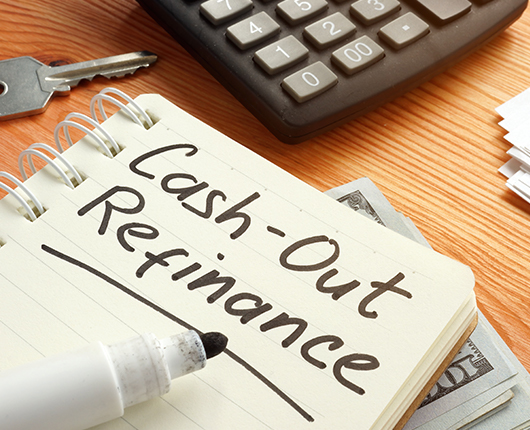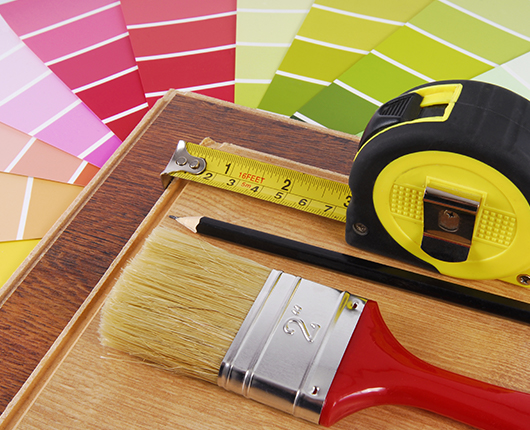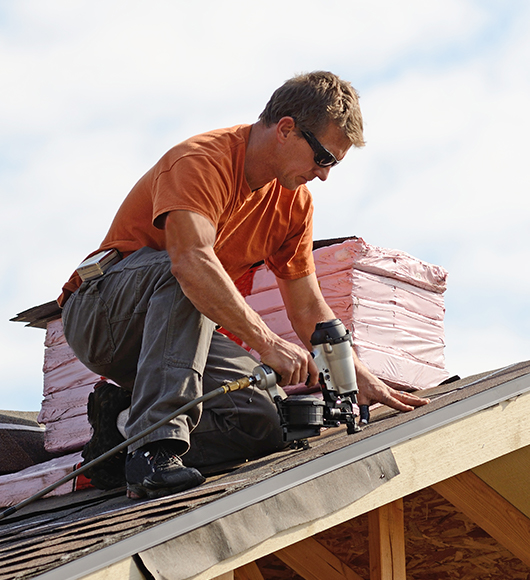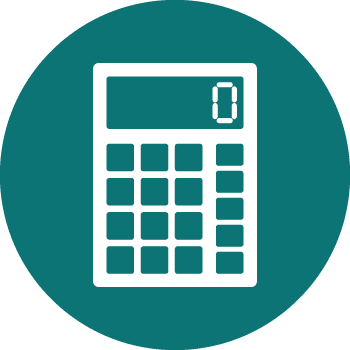What Are The Tax Implications of a Cash Out Refinance?
The question no one likes to think about: “What about the tax?” It is a constant reminder of our debt to Uncle Sam. Uncle Sam must have his due, and knowing what that will look like is key to understanding the full implications of any financial step forward. Your overall savings in any scenario come after the taxes are paid. In light of that, let’s turn our eyes to refinancing and what that looks like for your taxes. Refinancing, specifically cash-out refinance, creates an unusual scenario, but understanding the details of what you’ll owe when all is said and done is a crucial part of going into the deal with your eyes open.
With that being said, let’s take a look at the basics.

Cash-Out Refinance and More
Refinancing your home is the act of paying off your first mortgage with a new loan and renewing the terms based on a new interest rate and perhaps taking some of the equity you already have in the house out in the form of cash. Cash-out refinance, specifically, allows you to access the equity you’ve put into your home and allows you to remove that cash from the home to reinvest in a different way as you see fit. However, this isn’t equivalent to free money. You can’t simply take the new income and use it however you see fit without paying taxes on that money. Luckily, the IRS does not view the cash you receive from your cash-out refinance as income. So you won’t be paying taxes on the large sum you withdraw in the way you might expect. But, if you’re hoping to claim the mortgage interest deduction, you will need to carefully navigate a few careful details.
Home Improvements & Tax Breaks
Many use their cash from their cash-out refinance to put money back into their home and start on a large home improvement project. This is very advantageous, as you’ll be able to deduct the interest paid on your new mortgage. The sort of improvements that qualify for this tax break generally include home improvements that specifically increase the home’s value. For example, green energy upgrades might offer an exceptional set of tax breaks for you. If you’re looking to take advantage of as many different tax breaks during the year as possible for which your cash-out refinance qualifies you, it’d be worth it to consult with a tax professional about the improvements you intend to make and which would qualify. Indeed, in regard to tax, you can increase the value of your home and use the improvements to get a write off, which basically doubles the overall benefit of refinancing.


What You Can Safely Use Your Cash-Out Refinance On
If you’re hoping to keep your cash-out refinance tax deductible, you could consider some of the following home improvement projects to stay in that realm.
New Fencing
New Roof
Replace Windows
AC & HVAC Upgrades
Home Security
Add Rooms onto the Home
Swimming Pool & Hot Tub Additions
Green Energy/Solar Improvements
The key to making an improvement that you can get a tax break on is to make a “capital improvements.” These are generally defined as permanent additions to the home, which will directly increase the value of the home. A repair like painting a window, updating the baseboards and things of a strictly cosmetic nature won’t count. In other words, if you’re looking to access the tax advantages from a cash-out refi, you’ll need to notably improve your home. If the above suggestions aren’t what you have in mind, there are still options like kitchen and bathroom remodels. Modifications for elderly individuals and other accessibility changes for a better quality of life could also qualify.
The Limits For Tax Deductions
If you use the cash-out on anything other than the capital improvements for your property, you won’t be able to deduct the interest on the entire mortgage. For example, if you use some of the cash from your cash-out refinance to help pay off credit-card debt as well as a home improvement, you’ll only be able to deduct the portion used for the property's improvements. If you choose this route, you’ll find that you’ll only be able to deduct the interest on the original mortgage’s balance. To illustrate this, we’ll start with this basic scenario: You have a mortgage with around $70,000 principal and you use a cash-out refi to access $20,000 from equity. If you use the $20,000 for a home improvement, you’ll be able to deduct the interest off a total of $90,000. If you use the cash-out refi money for something like a college fund or credit card debt, then you’ll only be able to write off the original balance of our mortgage at $70,000.

Start Your Cash-Out Refinance Today
If you’re feeling a little more secure about how a cash-out refinance can work for you, reach out to Lending Studios today! We’re here to help you find the premium loan option you need. Get started today.
Mortgage Calculators
Quickly predict your monthly mortgage payment and interest with this customizable tool!
Mortgage Resources
Leverage the tools you need to find a borrowing solution that fits your particular needs and budget.
Mortgage FAQs
Get answers to the most commonly asked mortgage questions.




